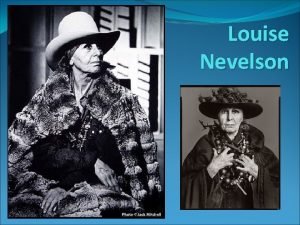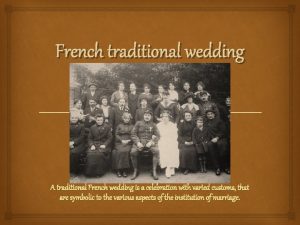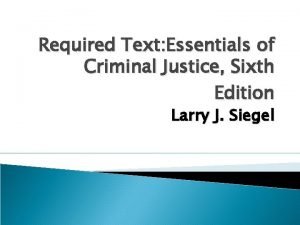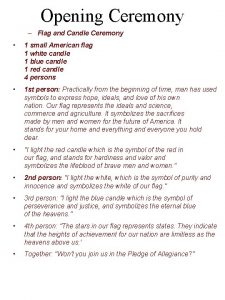WEDDING CAKE WO KIROU Wedding Chapel Ceremony and

![Q: What do the Wedding Cakes of Chaperu Kekkon-Shiki [Chapel Wedding Ceremonies] in Japan Q: What do the Wedding Cakes of Chaperu Kekkon-Shiki [Chapel Wedding Ceremonies] in Japan](https://slidetodoc.com/presentation_image_h/2d763e7d8288ef800d25b38b2bfbfa9f/image-2.jpg)

![1. CAKE • Why Cakes? • Cakes, in essence are both: [1] “liminal objects” 1. CAKE • Why Cakes? • Cakes, in essence are both: [1] “liminal objects”](https://slidetodoc.com/presentation_image_h/2d763e7d8288ef800d25b38b2bfbfa9f/image-4.jpg)

![3. The Wedding Cake • As an object: [1] A symbol of the Chapel 3. The Wedding Cake • As an object: [1] A symbol of the Chapel](https://slidetodoc.com/presentation_image_h/2d763e7d8288ef800d25b38b2bfbfa9f/image-6.jpg)


![Q: What do the Wedding Cakes of Chaperu Kekkon-Shiki [Chapel Wedding Ceremonies] in Japan Q: What do the Wedding Cakes of Chaperu Kekkon-Shiki [Chapel Wedding Ceremonies] in Japan](https://slidetodoc.com/presentation_image_h/2d763e7d8288ef800d25b38b2bfbfa9f/image-9.jpg)
- Slides: 9

WEDDING CAKE WO KIROU! Wedding Chapel Ceremony and Implications in Japan Marcus Williams Haverford College Spring 2012
![Q What do the Wedding Cakes of Chaperu KekkonShiki Chapel Wedding Ceremonies in Japan Q: What do the Wedding Cakes of Chaperu Kekkon-Shiki [Chapel Wedding Ceremonies] in Japan](https://slidetodoc.com/presentation_image_h/2d763e7d8288ef800d25b38b2bfbfa9f/image-2.jpg)
Q: What do the Wedding Cakes of Chaperu Kekkon-Shiki [Chapel Wedding Ceremonies] in Japan say about Japanese people, if anything?

How to approach this question: 3 Steps to discern meaning: 1. Cakes >>>> The Wedding Cake 2. Social Eating in Japan >>>> Interaction with Imported Modes of Commensality 3. The Wedding Cake in Chapel Ceremonies as a Discussion on the Causes and Consequences of the Ceremony
![1 CAKE Why Cakes Cakes in essence are both 1 liminal objects 1. CAKE • Why Cakes? • Cakes, in essence are both: [1] “liminal objects”](https://slidetodoc.com/presentation_image_h/2d763e7d8288ef800d25b38b2bfbfa9f/image-4.jpg)
1. CAKE • Why Cakes? • Cakes, in essence are both: [1] “liminal objects” [2] adaptive to individual and group dynamic(s)

2. Social Eating in Japan • Defining “Social Eating” • Ways of eating revolving around two or more persons; group politics [1] matsuru/matsuri (to celebrate/celebration) [2] “In” (uchi) and “Out” (soto)
![3 The Wedding Cake As an object 1 A symbol of the Chapel 3. The Wedding Cake • As an object: [1] A symbol of the Chapel](https://slidetodoc.com/presentation_image_h/2d763e7d8288ef800d25b38b2bfbfa9f/image-6.jpg)
3. The Wedding Cake • As an object: [1] A symbol of the Chapel Wedding • As a food: [2] Connects the wife and husband to their audience when eaten

4. Eating Together Q: Are imported modes of eating, or foreign edible products translatable from one group of people to the next? Q: If wedding cakes in essence are foodstuffs eaten in a social context, do they transform/reinforce social eating modes in Japan?

5. The Wedding Cake as a Way to Analyze the Chapel Ceremonies • Religiosity (or rather the lack thereof) of the Ceremony • Non-existent interest in Christianity, as much as it is an interest in the practice; shows an acceptance of Christianity as opposed to any “real” investment in practice of • Economic Connectivity • Bubble Economy of the late 80 s, Continued middle class wealth; attempts to become an individual in society that cherishes sameness through a new approach to being wed • Inedibility, Nyutou and First Bite: • Connects the husband wife together; the presentation itself creates a clear line of separation between the couple and audience BUT not so much between audience member and audience member
![Q What do the Wedding Cakes of Chaperu KekkonShiki Chapel Wedding Ceremonies in Japan Q: What do the Wedding Cakes of Chaperu Kekkon-Shiki [Chapel Wedding Ceremonies] in Japan](https://slidetodoc.com/presentation_image_h/2d763e7d8288ef800d25b38b2bfbfa9f/image-9.jpg)
Q: What do the Wedding Cakes of Chaperu Kekkon-Shiki [Chapel Wedding Ceremonies] in Japan say about Japanese people, if anything?
 Louise nevelson dawn's wedding feast
Louise nevelson dawn's wedding feast Types of unshortened cakes
Types of unshortened cakes Görücülük
Görücülük Traditional french wedding dresses
Traditional french wedding dresses Criminal justice wedding cake diagram
Criminal justice wedding cake diagram Criminal justice wedding cake diagram
Criminal justice wedding cake diagram What is the criminal justice funnel
What is the criminal justice funnel Criminal justice wedding cake diagram
Criminal justice wedding cake diagram A dance performed during wedding feast
A dance performed during wedding feast Southern view chapel
Southern view chapel

















